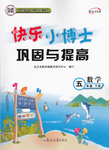题目内容
My friend had mentioned the other day that her father had a lot of children's toys he was looking to give away. She knew I have a three-year-old daughter so she thought of me first. I told her I would love it if I could get some nice things for my daughter, which I wouldn't otherwise have been able to afford.
When I met her father, he began to explain he was too poor once and that he would hate to throw away things that can be very useful.
Before he showed me what he was giving away, I thought the toys would be mostly lego's(乐高积木) or things like that. When he was showing me around I saw a bed, a slide, a kitchen set and many other things that just blew my mind. He told me to write a list of everything my daughter could use and as my eyes were wide, he told me not to feel guilty. He said I was helping him by getting rid of the stuff.
As I was looking around I did feel guilty, but I tried to remain more grateful than guilty. Every time I tried to thank him for giving me and my daughter all this wonderful stuff he would thank me right back. I wanted to believe that he was just thanking me so that I wouldn't feel so guilty but in reality I believe that he was as grateful as I was that these toys would be put to good use.
In the eyes of charity, it makes sense to feel grateful, but guilt is just as normal. I know that we could have lived without a slide, which is why I do feel guilty, but I am grateful all the same because my daughter really does enjoy all these nice things!
1.Why did the old man want to give away his toys?
A. He wanted to help those poor children.
B. He was wealthy enough to buy new toys.
C. He wanted to make full use of those toys.
D. He needed some space for more useful things.
2.In the writer's opinion, the old man felt grateful because
A. he wanted to make her more guilty
B. he wanted her to take the toys quickly
C. the toys would be put to good use
D. he finally got rid of the stuff
3.What can we know from the passage?
A. The writer took all the toys home.
B. The old man was a kind and thoughtful person
C. The writer wanted to refuse the stuff when she first saw them.
D. The writer's daughter enjoyed the slide most among all the stuff.
4.How did the writer feel when given the stuff?
A. Guilty and honored. B. Grateful and respected.
C. Honored and respected. D. Guilty and grateful.
1.C
2.C
3.B
4.D
【解析】
试题分析:朋友的父亲把一些闲置的儿童玩具送给我,我对他表示非常感谢,不料他对我万分感谢,因为他为这些玩具找到了重新利用的地方。
1.C 推理判断题。 根据文章的第二段和第四段的最后一句“but in reality I believe that he was as grateful as I was that these toys would be put to good use.”可知,老人把玩具送人是想让这些玩具得到充分利用。C项表述符合文意,其他三项文中没有提及,故选C。
2.C 细节理解题。根据第四段的最后一句“I wanted to believe that he was just thanking me so that I wouldn't feel so guilty but in reality I believe that he was as grateful as I was that these toys would be put to good use.”可知,在作者看来,老人感谢是因为这些玩具将被好好利用,并不是想让她更内疚(A项)、想让她赶快把这些玩具拿走(B项)或他终于处理掉这些物品(D项),C项表述符合文意,故选C。
3.B 推理判断题。根据第三段的倒数第二句可知作者并不是把所有的玩具都拿回家了,A项表述不符合文意;通读全文可知老人善良且考虑周到,B项符合文意;根据第四段的前两句可知C项表述不符合文意;D项表述文中没有提及。故选B。
4.D 细节理解题。根据第三段的倒数第二句和最后一段可知,被给了这些玩具后,作者既感到内疚又充满了感激。D项表述符合文意,选D。
考点:考查日常生活类短文阅读

 快乐小博士巩固与提高系列答案
快乐小博士巩固与提高系列答案